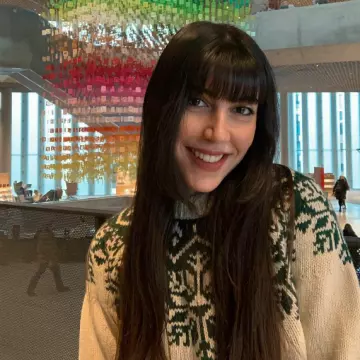Feminist community at the University of Oslo is for sure the right place to start taking your first steps in world of feminism. Within the wide range of associations that makes UiO such a stimulating environment to bring together people’s desire to cultivate interests and passions besides studying, there are two feminism related groups that you shouldn’t miss: Trass! and SFF UiO. Here is why.
Norway in General Is the Ideal Place to Get Familiarized With Feminist Issues
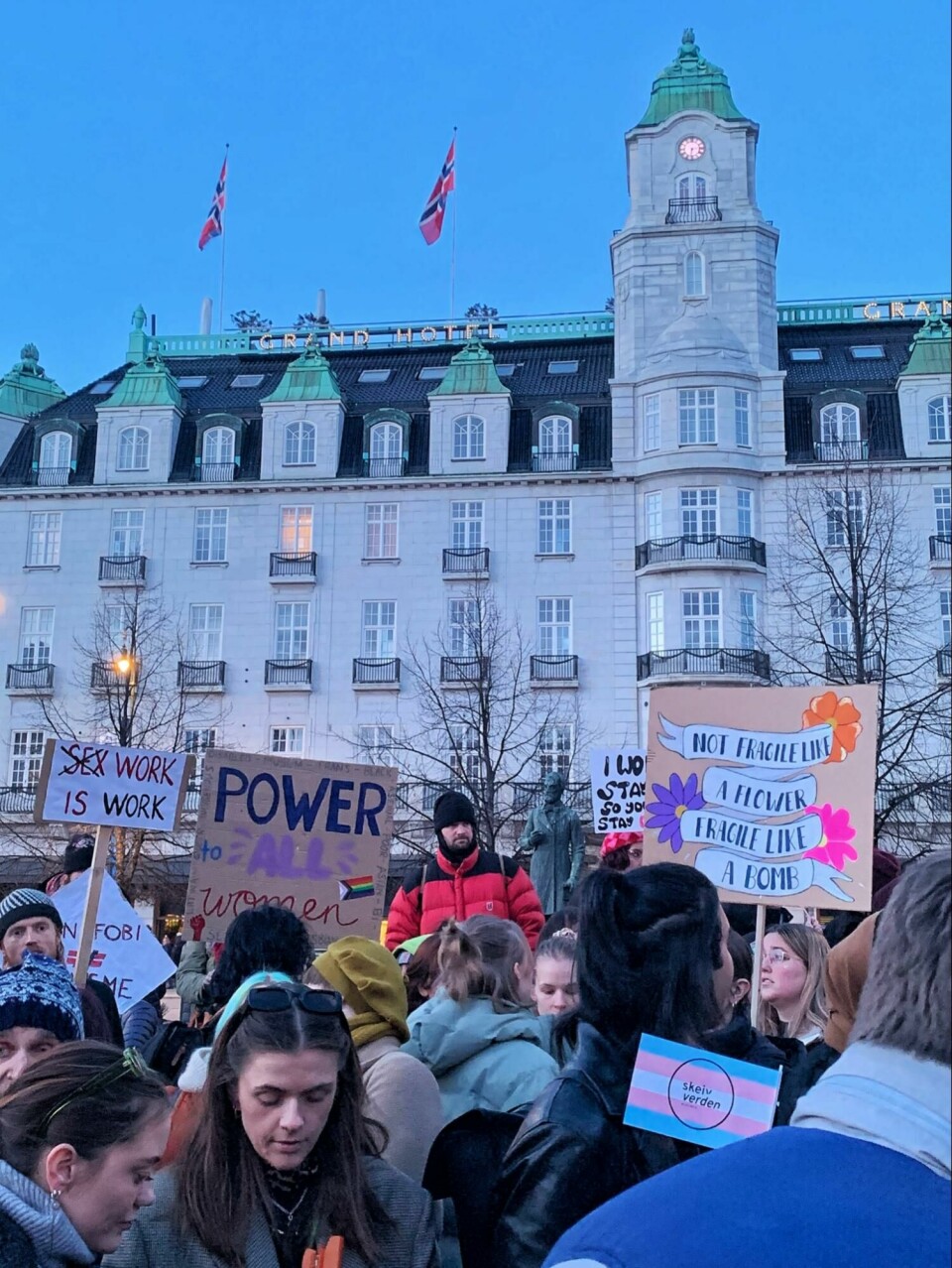
Norway seems to be, in all likelihood, an ideal environment for international students to start caring about feminist activism. As a matter of fact, it’s no secret it’s one of the most progressive and advanced countries in the world when it comes to gender equality and sensitivity to women's rights and life conditions: according to the Global Gender Gap Report 2022 | World Economic Forum Norway is in the top 5 countries in the world for gender equality, at the 3rd place after Iceland and Finland. Besides this, the country has come a long way with concrete policies in favor of women’s empowerment, engagement in politics and social equality. For instance, the Equality and Anti-Discrimination Act entered into force in 2018 represents one of the most meaningful recent acts in this direction, specifically designed with the purpose of promoting gender equality, by giving as reported by Gender equality - regjeringen.no, “protection against discrimination on the grounds of gender, pregnancy, leave in connection with childbirth or adoption, and care responsibilities.”
It goes without saying that all that glitters is not gold, and that there is still a long way to go in solving many issues in Norway as well. But as an international, coming from a different social and cultural background and getting in touch with the progressive environment that Norway offers might turn out to be extremely relevant to one’s construction of a more global critical eye and to a cross-border identification of what to strive and fight for.
The ultimate aim of many student associations at the university is training students to participate, be active within a community, in other words, becoming the citizens of tomorrow. Therefore, with reference to feminism, that’s why joining an association such as “SFF UiO” or reading and writing for the student feminist magazine “Trass!” is a promising way to get started.
Trass!: a challenge to conventions
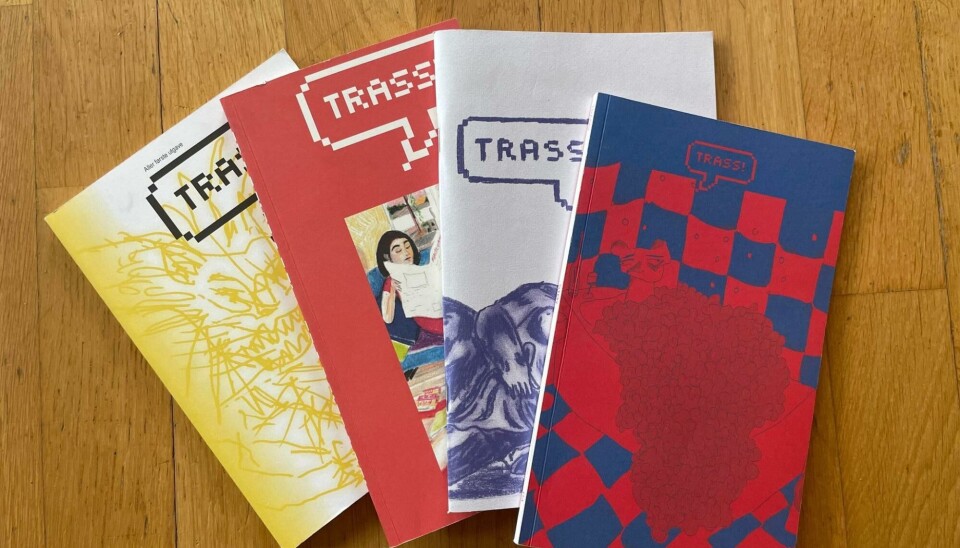
Trass! was founded in 2019 both as a feminist interdisciplinary magazine and as an arena for various feminist activities. The journal is published once every semester and each number focuses on a chosen theme.
“The magazine was founded with the desire to create a safe and inclusive platform, with space to take up themes and contributions in genres that are not usually represented in the other student magazines,” as the editorial team explains. “The interest has been great and it made us clear that the Blindern campus needed a feminist journal.”
“What is more,” they add, “it is not linked to any faculty, so everyone that might feel like doing so can freely contribute. We are open for all kinds of contributions that deal with themes that fit with our feminist profile. We operate with a broad concept of ‘text’,” they explain, “so we accept a wide diversity of genres: short stories, non-fiction, essays, poetry, comics, quizzes, drawings, audio and so forth. And an important aspect to underline is that we don’t only look for writers, but also for creative illustrators.”
Besides the activity that revolves around the journal, Trass! proposes readings, circles, workshops, parties, and film screenings.
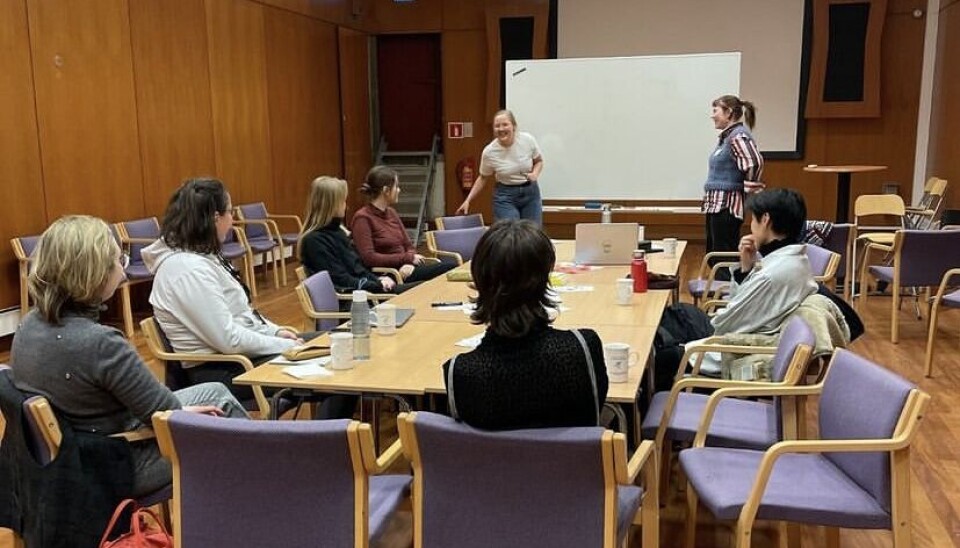
“If we have to think about a highlight in the story of our association,” the team recalls, “it would be the panel discussion at the 8th of March that we held in 2021 in collaboration with Venstrealliansen (Left alliance, a political student organization – journalist's comment here and in the rest of the article) to talk about the year that has passed from a feminist perspective. In a panel with representatives from Minotenk (a politically independent think tank that works with minority political issues), Skeiv Ungdom (Queer Youth), LAG (the Latin American Group) and parliamentary representative Solveig Skaugvoll Foss from SV (Socialist left party), we streamed a live conversation from Chateau Neuf. Idunn from Trass! led the conversation and it was a great debate, which has been seen almost 800 times on Facebook.”
Regarding the association’s internal organization, all members in Trass! are editors. “But experience has taught us that it is important to have clear roles and a clear distribution of responsibility,” the editorial team explains. “Therefore, we decided to have a number of positions that rotate every semester: graphical responsibility, responsibility for proofreading, events, website, social media, etc. We meet once a week and go through a case list at the same time as we socialize and just have fun together. At the moment we are 15 active members – with room for more!”
And as far as international students are concerned, great opportunities are around the corner. “We have discussed in the group how we can integrate international students. The journal itself receives texts in both English and Norwegian. Mostly in Norwegian, but there will also be editing responsibilities that you can contribute to without necessarily speaking Norwegian. However, the breaking news is that we are about to start a feminist podcast on Radionova. It is perhaps the most relevant project for international students, so if you feel like you might be into this, just contact us and we’ll figure it out.”
If you’re interested in joining Trass!, sending contributions for the upcoming issues, reading the journal and being updated on the events, here’s how to reach out:
Email: trassredaksjonen@gmail.com
Website: https://www.trasstidsskrift.no/
Facebook: https://www.facebook.com/trasstidsskrift
Instagram: @trasstidsskrift
SFF UiO: a safe space for all
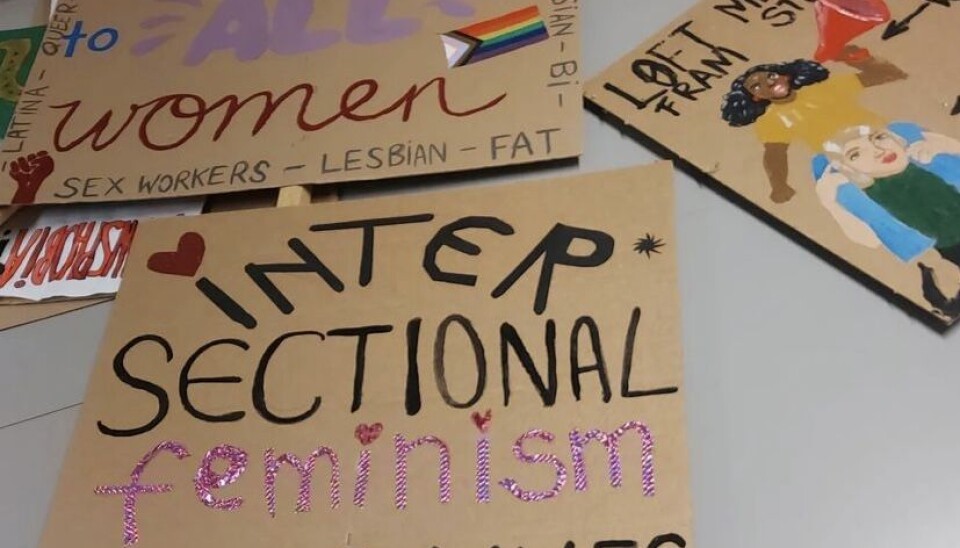
The Studentenes Feministiske Forening (SFF) is a pretty recent association but with a large following and a great potential already. Founded in 2021 upon the initiative of the Master’s students at the department of Gender Studies of the University of Oslo under the slogan “Feminism for All,” it proposes various activities, such as discussions, meetings with experts in the field, open talks, workshops, but also parties, movie nights and chill moments of sharing.
“Openness, inclusivity, togetherness, awareness and intersectionality: these are the core values that inspire us,” Annamåd and Meri, two of the association’s board members, claim. “Our association was created in response to the need for a strong feminist basis within our university. We don’t follow or impose a specific feminist stream above others, but what is certain is that we are against the exclusion of certain groups and minorities that are often left behind even within certain types of feminism. So when it comes to us, queer people, trans people, sex workers and so forth are always included in our discussion – it’s just the perspective on things in which we identify naturally.”
The meetings are once every couple of weeks and are usually focused on a precise theme. Sexuality and asexuality, Disney villains and witches, post colonialism, masculinity: these are only a few examples of topics that have been discussed so far.
“We usually like to bring out relevant current issues to let people explore new issues and interests,” Annamåd and Meri explain, “but what we care about the most is making the people comfortable from the very first moment they enter the room. Our concern is creating a safe and relaxed environment, a space pleasant to go to. We are well aware that student life might be lonely sometimes, and stressful as well, so our main purpose is just trying to make people feel at ease and give them a better campus experience. We really care for details to make this concrete: for example, we have been thinking a lot even about our tables’ disposition, and we’ve concluded that the u-shape is the best one to make everyone feel included. What is more,” they continue, “a strict attendance is not required, as it’s not necessary to talk if you don’t feel like doing so. You can just come to listen, enjoy the company and our good snacks.”
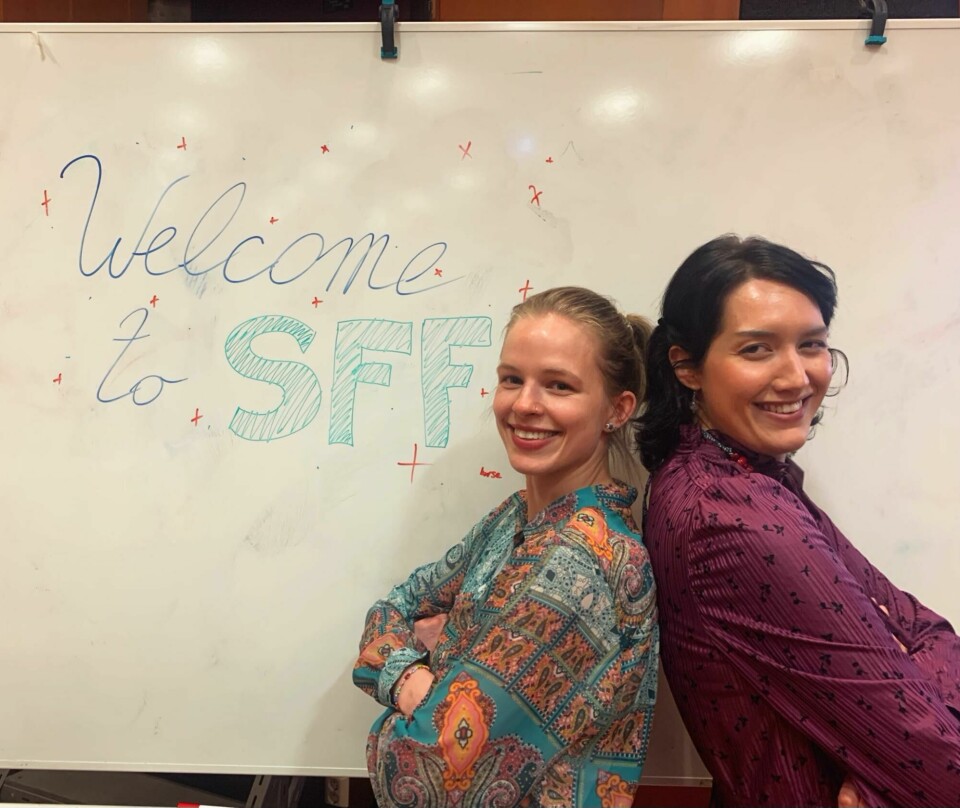
Several international students, both exchange and full time, participate in SFF's activities. “Their presence is really important to us,” Annamåd and Meri confirm. “They bring diversity of thinking and they contribute with the different experiences and backgrounds to the ideal of openness around which our association revolves.”
If you’re interested in becoming a member, it’s very easy: you just need to visit the association’s website and fill a form. By doing so, you’ll get access to the association’s Facebook group and receive the monthly Newsletter with a recap of the past events, news on the upcoming ones, and the feminist tip of the month!
Email: femforening.uio@gmail.com
Instagram: @sff_uio
Facebook: Studentenes Feministiske Forening UiO
International members speaking up!

And to top it off, it’s now the moment to give the floor to the international students’ experience within the University of Oslo’s feminist community: what pushed them to join a feminist association while being abroad? What do they feel like having inherited with their attendance of these groups, and would they suggest everyone to participate?
“Since I didn’t have this opportunity in my home University, once I came here I wanted to be more involved within the university’s student life and possibly meeting new people with whom sharing the same interests,” as Sandrine, a Quebecer exchange student for the spring semester, replies. “The fact that I got to attend a Minor in Gender studies back home, at the University of Québec in Montreal, was really eye-opening for me, but my activism was still lowkey at that time. Once here, when I discovered the existence of SFF at the University of Oslo, the first aspect I strongly cared about was evaluating how inclusive it was, considering that there are different streams of feminism. And, I have to say, I was surprised by this association’s openness,” she claims.
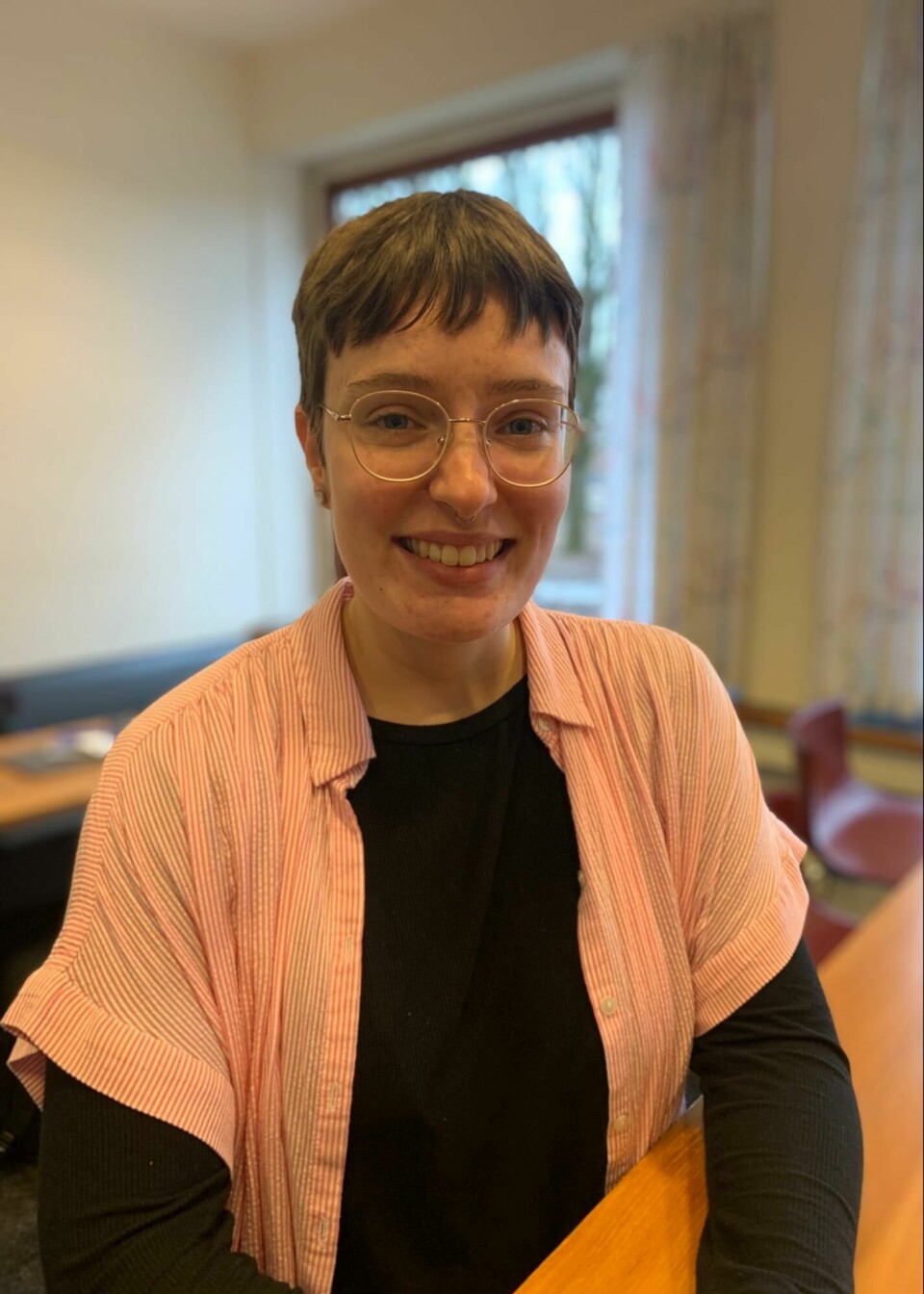
“I feel like you could have no idea of what feminism is, but you would still be accepted anyways. It’s a free and nice environment, really welcoming towards everyone. Intersectionality in particular is the core philosophy behind this group’s perspective and approach to reality. A thing that I appreciated from the very first time,” she tells, “is that the board members are respectful and caring, an aspect that you could easily guess from a simple but relevant act: giving new people cards where to sign their personal pronouns, in order to make everyone feel always comfortable and at their ease.”
Among the various activities proposed by SFF, the discussion about Disney villains was the one that struck Sandrine the most.
“The representation of bad characters in children's movies mostly as ugly, fat, different from the norms was an extremely cool topic to talk about. Within the debate, what came to surface was that many people used to identify more with villain characters as children, because they felt like they didn’t fit into the traditional categories. I remember we’ve dwelled in particular on the figure of Ursula in The Little Mermaid,” she explains. “This villain was actually inspired from a drag queen, a black person in real life, which, not surprisingly, has been represented in the movie with purple skin while everyone else in the movie is white. And of course, the difference is associated with being bad and outside the norm. A lot of this kind of representation has to do with queer stereotypes as well: a character such as Ursula is depicted as more masculine than the other women present in the movie, while conversely Jafar in Aladdin, for instance, is portrayed as more effeminate. Long story short, when it comes to building bad characters in children’s movies it’s all about overturning traditional and pre-established standards and addressing the result as wrong and evil.”
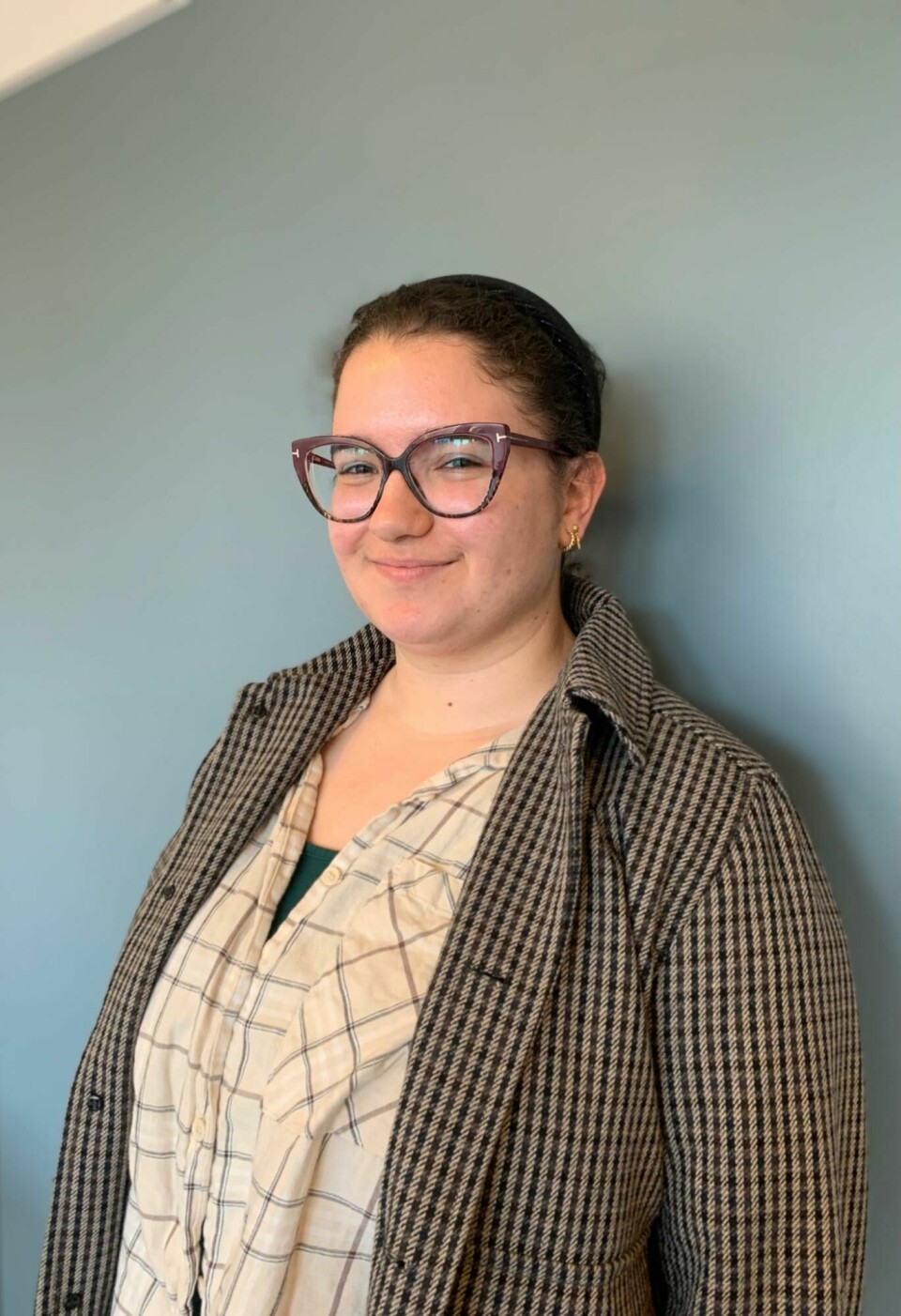
According to Ioana, a Romanian exchange student, the meeting about Disney villains was the most interesting one as well.
“I’ve never thought about putting Disney movies in a feminist context,” she claims. “Discovering new topics is one of the best pros of joining an association such as SFF. But most of all, in my opinion, its crucial feature is that it truly feels like a safe space: it’s no exaggeration to say that the first time I raised my hand to say something here in Oslo was there. Even though I think I don’t yet have a thorough knowledge about feminism related topics, I know that every question, doubt, discussion is always accepted in a non judgemental way here.”
“There are,” she continues, “some working circles that deal with feminism at my home university, actually, but it’s the only thing, to be honest. In addition, I still have the impression that when you talk about feminism, you’re always laughed at and not taken seriously. Therefore, once I started my exchange year in Oslo, I took the opportunity to become more active, as I am surrounded by a more stimulating and progressive environment. Educating myself and unlearning the processes I was immersed into while growing up in a patriarchal society – that’s what I’m trying to do here. And participating actively within the University of Oslo’s feminist community has been playing an important role along this path for me.”

